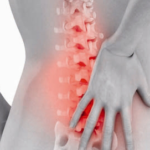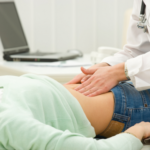Obtaining 1, 2 and 3 disability groups for spinal hernia
Many patients faced with a diagnosis ask a natural question about whether they give disability with a hernia of the spine? Nevertheless, this is a complex disease, which in some cases can not only lead to a pronounced pain syndrome, but also deprive the patient of the opportunity to move normally.
How will a patient be given a disability? What are the features of the process in people with hernias? What to do when the coveted group is finally given?
Features of the prognosis for hernia
Hernia is a disease, the course of which is very individual. So, for example, this pathology can be overlooked throughout life, but at the same time in another person it can manifest itself in full force even in youth.
Interestingly, until the pathological protrusion begins to put pressure on the spinal cord, the patient will not have any symptoms of pathology. But if the defect is in the spinal canal, the patient will feel all the "charm" of the disease.
As soon as the symptoms of an intervertebral hernia become too pronounced, and the patient begins to suffer not only from pain, but also from limited mobility, it comes to giving him a disability.
In principle, if the patient pulls himself together in a timely manner and begins to take care of his own health, he can avoid a medical examination and return to a full life. But due to the delay in treatment, its high cost or the impossibility of any intervention, the disease can progress rapidly, and then the only way to socially protect yourself is to get a group.
Features of disability
It is important to understand that if a person is given a disability, it may not be associated with a hernia. Often a hernia provokes many additional pathologies, expanding the list of diagnoses, and it is these diagnoses, and not the defect itself, that become the reasons for contacting the labor commission.
The assignment of the class is carried out by the medical and social expert commission. Her duties include determining the degree of disability, assessing the general condition of the patient, correlating the diagnosis with the ability to perform a particular job.
Main criteria
It is quite difficult to predict reliable outcomes when obtaining a disability. Experts take into account a large number of different factors, including the support of relatives, the availability of additional sources to help provide income, and activity in the social sphere. Therefore, to believe that even with a strong hernia, the patient will receive the first group, and nothing else, is wrong.
You can get a disability group for a hernia, but it is unlikely that it will be assigned forever. The fact is that a hernia is treated promptly, and often after the intervention there is a significant improvement in the general condition, due to which the status is naturally lost.
After surgery to remove a hernia of the spine, the patient, for example, is given a temporary disability so that he can fully undergo rehabilitation and, having improved his health, return to full-fledged work again. Permanent disability after surgery can be obtained if the intervention was unsuccessful.
There are three main groups, each of which has its own characteristics.
Third group
People who have received the third group are allowed to work in their specialty, albeit with lighter loads.
If the patient was given this category, then:
- he is concerned about a persistent pain syndrome that is resistant to drug therapy, requiring constant use of NSAIDs;
- the spinal column is significantly limited in movement, but the person is still able to serve himself, perform basic movements, although not coping with full loads;
- the patient suffers from frequent exacerbations of the disease, which significantly reduce not only working capacity, but also the overall quality of life.
Disability after removal of a hernia of the third group can be temporarily assigned if the operation was small and went without complications.
Second group
The second disability group is for hernia patients who have a poorer prognosis. In this case, not only exacerbations are frequent, which cannot be stopped with medication. Often, after the removal of a hernia of the spine, no improvement occurs, which can also be the reason for issuing the second group.
Is it possible to get a disability with a hernia of the spine?
Yes, the second category is given if:
- the patient suffers from constant intense pain that is not relieved by NSAIDs, anticonvulsants and antidepressants;
- a person cannot fully move in the spinal column, and there are also problems with the range of motion in the upper or lower extremities;
- any neurological symptoms were diagnosed, whether it be banal numbness, goosebumps, decreased reflexes, decreased muscle mass on the limbs, etc.
In this category, the patient cannot perform even duties that are lightened to the maximum, and is forced to constantly be on sick leave.
First group
Do they give a disability group for a hernia of the spine, if not only the spinal column, but also the limbs are involved in the pathological process. Yes, if due to a hernia, the patient's limbs lose their mobility or the pelvic organs cease to function, he has the right to count on receiving the first class of disability.
In this case, the severity of the intervertebral defect is so strong that the person becomes completely disabled. He loses the ability to self-service, cannot perform elementary actions, he needs constant care.
It is interesting that the medico-social expert commission can, with an improvement in the general condition of the patient (for example, with the return of mobility to the limbs), reduce his disability group. Similarly, the process works in the opposite direction: if deterioration is observed, a person has the right to apply to the commission in order to receive a lower group.
Group acquisition process
Only a special commission can decide whether disability is allowed. However, how can an ordinary person get on this commission? If a patient with a hernia is observed by a doctor, then everything is very simple. The doctor, seeing the deterioration in the condition of his ward, can himself offer him an examination. Since such patients are mainly observed by neuropathologists and orthopedists (less often by vertebrologists), it is from them that the proposal regarding the commission most often comes.
The doctor can offer the patient an appeal to the commission if he sees that the prognosis is poor, and the therapy, no matter how it is changed, is still ineffective.
Before a person appears before the commission, he will have to undergo many examinations. In addition to the standard list of tests, it is necessary to perform CT or MRI of the area affected by the defect, myography, dopplerography and other studies. A neurosurgeon's opinion on operative prognosis may also be required.
The outcome of a commission's decision is often impossible to predict. If a person is denied the assignment of a group, then you can at least be glad that the disease has a good prognosis. In this case, it is best to listen to the recommendations of doctors and begin a full-fledged treatment so that you no longer appear before the commission's experts.
A hernia of the spinal column is a serious disease, which in some cases may well result in a full disability.
Disability for intervertebral hernia is assigned if the disease is difficult to treat, and the prognosis is unfavorable, no matter how hard the doctors try. It is necessary to prepare for the examination procedure as responsibly as possible, having passed all the recommended diagnostic studies, consultations and analyzes. With a lack of data on the patient's health status, MSEC may well refuse to issue a group.










